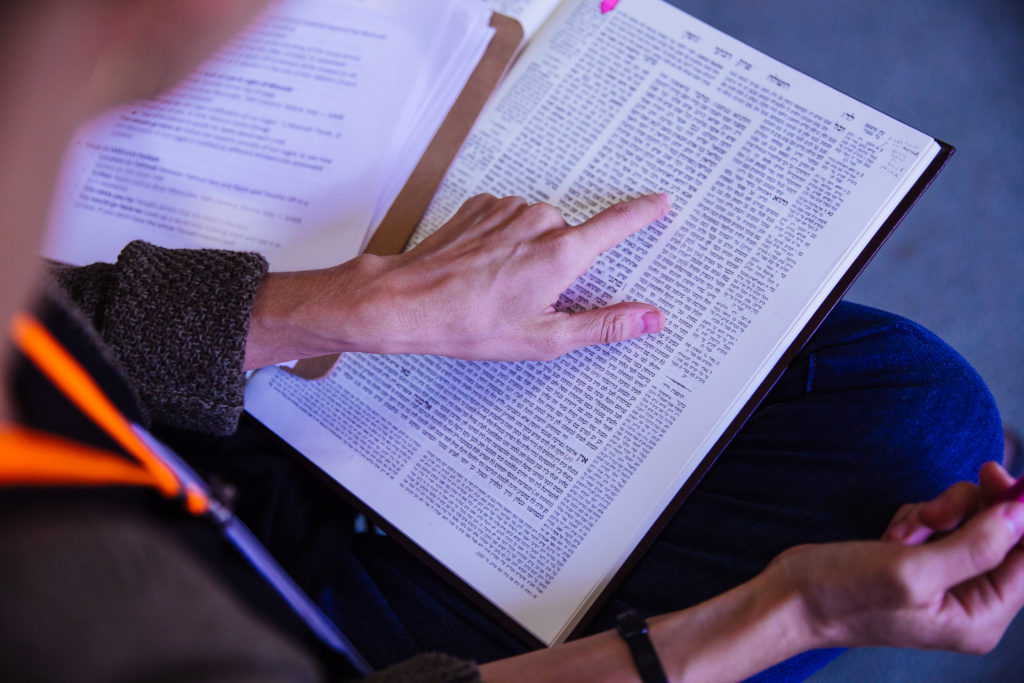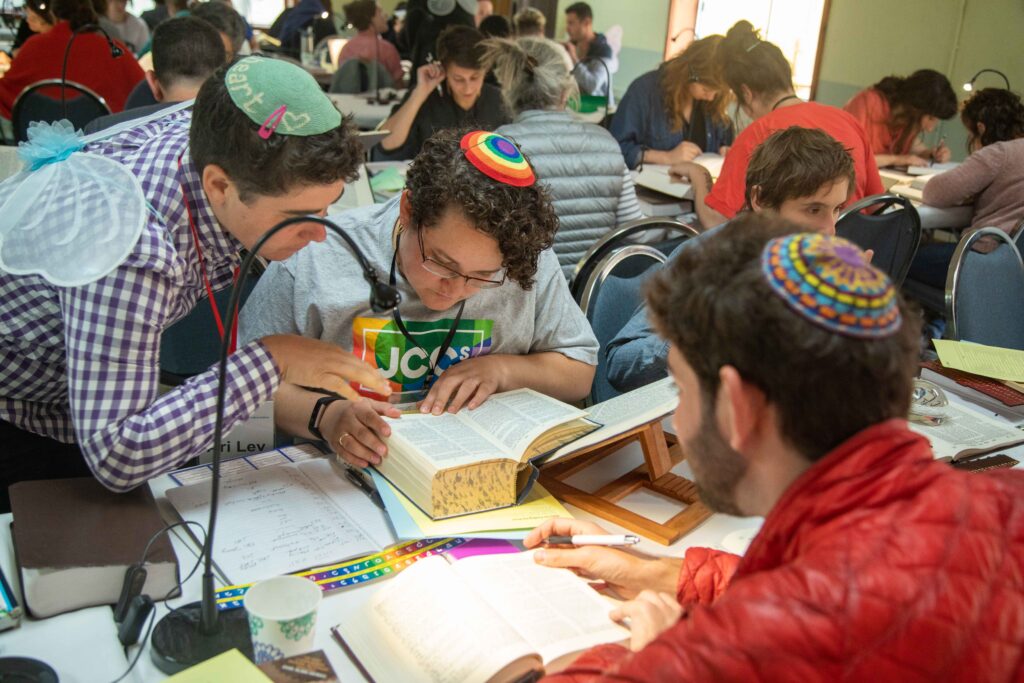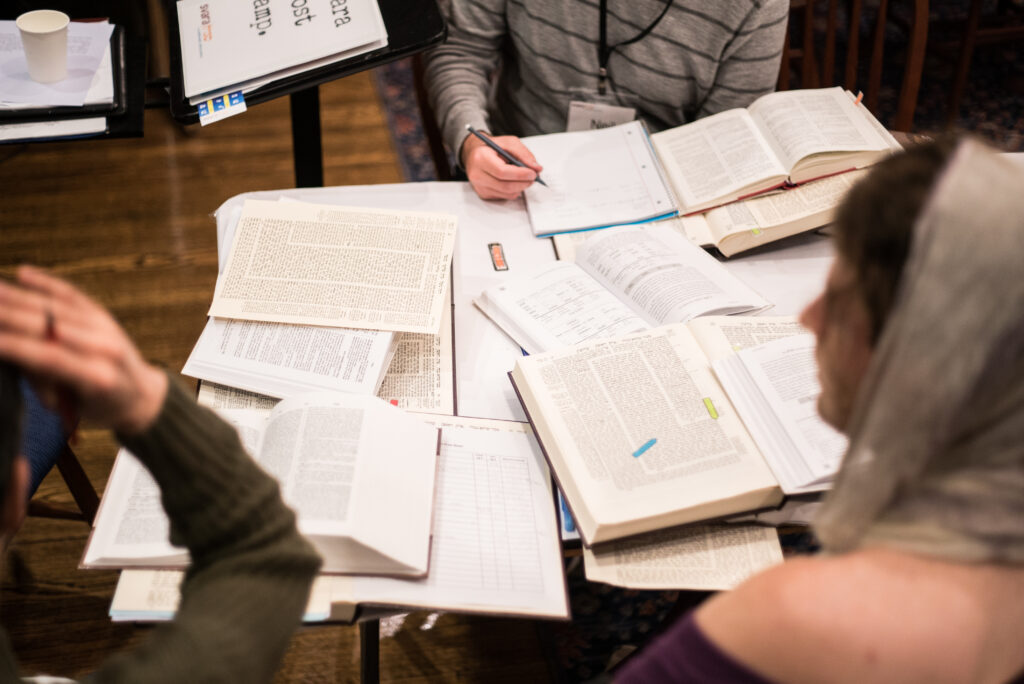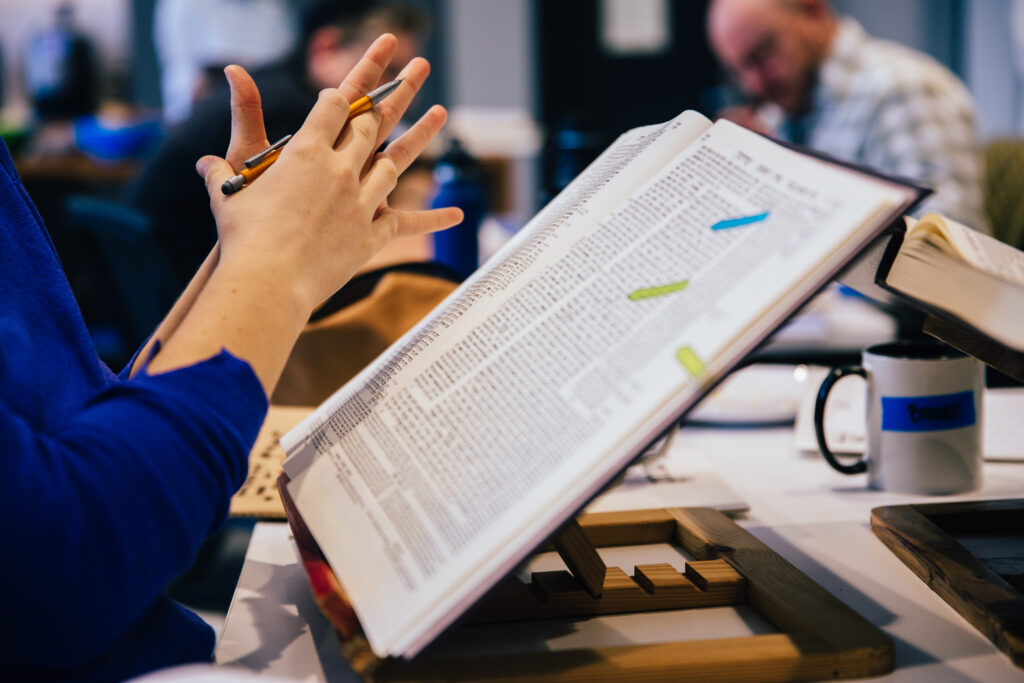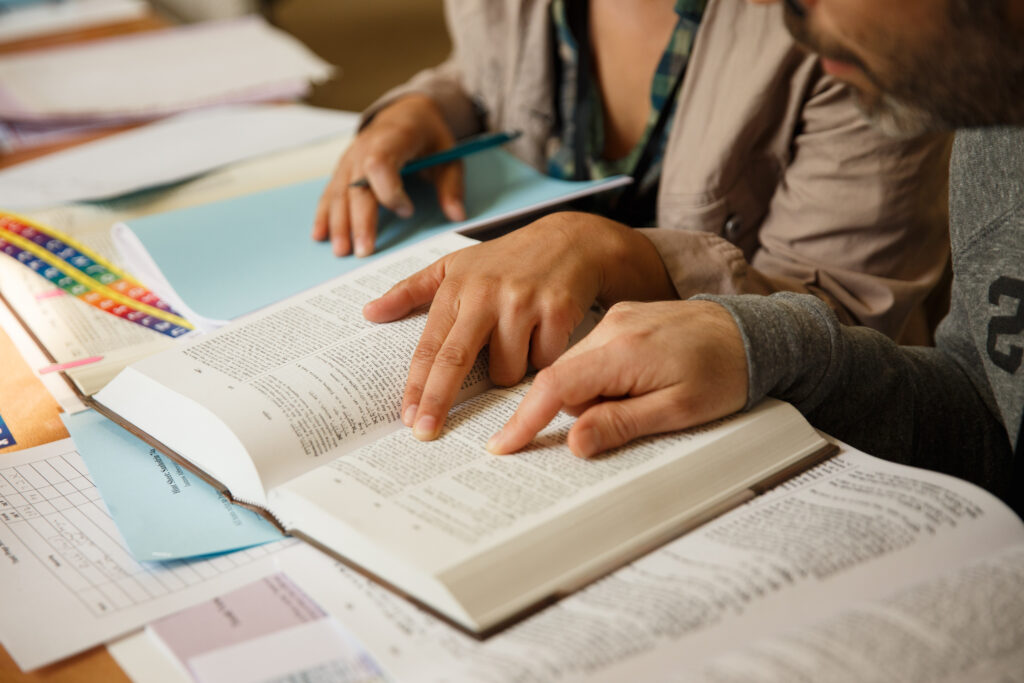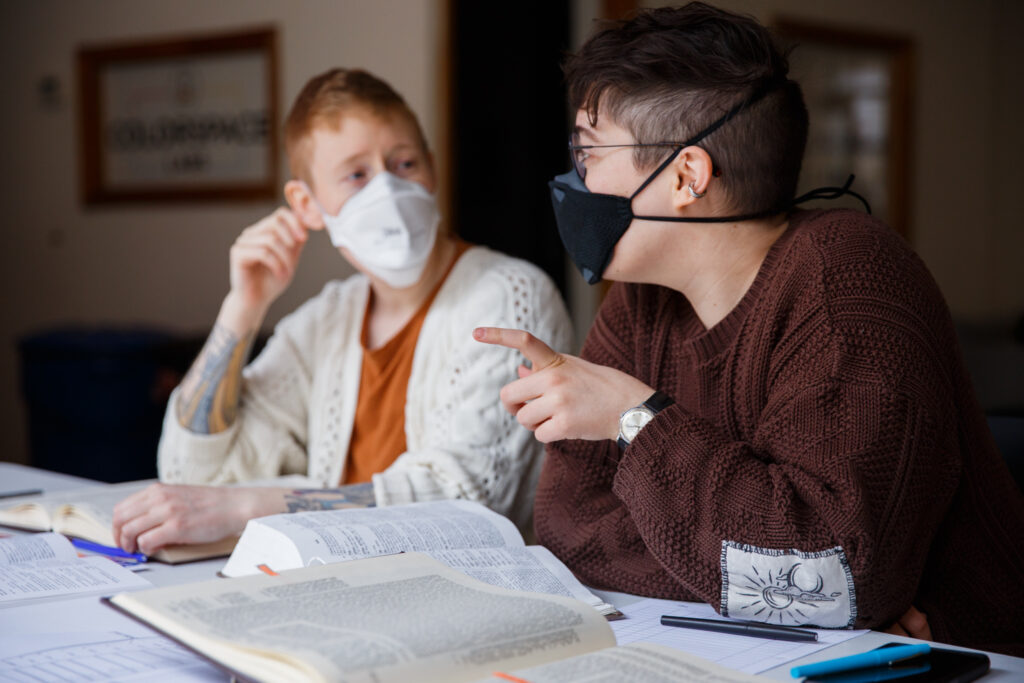After years of working in the service industry, making ends meet as best I could in the gig economy, I really thought “rabbi” was the way to have my cake and eat it too. I’d get to do what I love–teaching, community organizing, conflict resolution, art-making, studying–with a job that meant no more work that wears at my tired joints and tendons. I told myself the roughly $100,000 of debt would be later-me’s problem, because God dammit, I was going to be a rabbi and no one could stop me. Cut to three years later, I’m taking a leave of absence from school, realizing I’d never answered a key question: What is a rabbi?
In a teaching by Benay about Rashi’s commentary on Kiddushin 32b, she began with a brief explanation about the ways in which “rabbi” & “rav” today meant something very different in the time of the sages. This part of Kiddushin is dealing with the honor of a “rav”, which is translated as rabbi, teacher, or master. More inside, rav simply means large, great, much. It is often assumed that rabbi and rav are interchangeable terms, with “rabbi” being associated with sages in the Galilee and “rav” being associated with Babylonian sages. There’s some thought that unlike ravs, rabbis had an ordination process of some kind—though it would be unrecognizable to most modern paths to the rabbinate. There are plenty of texts and communities in which the two are fairly interchangeable, but in today’s context I think this is an oversimplification.
In many contemporary halakhic communities, a common understanding seems to be that a rav is a rabbi+. A rav has the training a rabbi would, with extra halakhic studies, and therefore added expertise that should be tapped into when difficult halakhic questions arise. A Chabad article explaining what a rav is caught my eye. While I disagree with much of the article, especially their claim that we must listen to a rav because a rav definitely knows what God wants, I was nonetheless struck by their pithiest, most basic definition of what makes a rav. “Three things a rav needs: Expertise, Experience & Authority. Authority requires a significant community.”
Expertise is formed in many ways, and is itself a result of Experience + Authority. I’d claim that a rav on any given topic must have experience in the topic—nothing about us without us. All the theoretical study in the world can’t replace what one learns through lived experience. But then comes the stickiest part of rav-making: authority. Who gets to appoint someone an expert? I can’t help but be skeptical of a system in which those with authority get to choose who else has authority, even with significant community support. What happens when the community, with their own fears and joys and self-interests at heart, is totally homogeneous? We’ve seen what happens when the Jewish communities that have the most resources are overwhelmingly white, cisgender, straight, etc. Alternatively, what happens when a community demands a seat at the table? Will they reject the existing authority outright? Will they dream up an alternate, additional authority? Baruch Hashem, that’s on us to decide.
In Kiddushin 32b, there is an argument about whether or not a rav can forgo their honor (כְּבוֹד/kevod/weightiness/dignitiy/respect), by humbling themselves or lowering their supposed status in some way. According to this sugya, a rav gains their honor through their vast knowledge of Torah. Because the Torah belongs to Hashem and not the rav, Rav Yitzchak bar Sheila & Rava claim that it is impossible to renounce this honor. When pressed on this point by the nameless stamma, Rava then reconsiders!
אָמַר רָבָא אִין תּוֹרָה דִּילֵיהּ הִיא דִּכְתִיב וּבְתוֹרָתוֹ יֶהְגֶּה יוֹמָם וָלָיְלָה
Rava said: Yes, it is [the rav’s] Torah, as it is written: “For his delight is the Torah of Hashem, and in his Torah he meditates day and night.” (Psalms 1:2)
In the original understanding of this Psalms quote, the last “his Torah” should be “His Torah”, aka Hashem’s Torah. But in one deft move, Rava reimagines this text. Rashi explains that, “when one studies it and embodies it, it is called their Torah”. If you become an expert in the Torah, it becomes yours! Surely though, I know more non-rabbis who study and embody Torah than I do rabbis. So if a rav must be an expert, what makes an expert beyond embodied study?
אֲבָל אָמַר צָרִיךְ אֲנִי אֵין שָׁם בְּקִיאִין כְּלָל מַאֲכִילִין אוֹתוֹ עַל פִּי עַצְמוֹ שֶׁנֶּאֱמַר לֵב יוֹדֵעַ מָרַּת נַפְשׁוֹ
However, if they said, “I do need to eat,” it is considered as if there were no experts there at all. We feed them based on their opinion, as it is stated: “The heart knows the bitterness of its soul.” (Proverbs 14:10)
Many SVARAniks have learned this text from Yoma 38a. When it comes to one’s autonomy, there are no experts/beki’in/בְּקִיאִין besides the self. The bitter truth that my heart knows, is that I am too burnt out, too disabled, too mentally ill, too radical, too much and not enough to become a rabbi in late-stage capitalism. Not to mention, I simply don’t have enough money to become a rabbi. Baruch Hashem there are people for whom all of that is also true, and still they find a way to become rabbis! The world is better every day that their torah is in it. But for me, for now, I’m spending some time asking questions. I have one more year to decide whether or not to fully remove my foot from this door, but I think my heart already knows what’s best. With many thanks to Ribono Shel Olam, this choice is made so much easier because of the material and spiritual support I’ve gotten working at SVARA.
Yoma 38a is the text that made me a SVARAnik, the text that made me a rabbinical student, the text that made me a rabbinical school drop-out, the text I return to again and again and see something new in it each time. I am not a rabbi, maybe I’m on my way to honoring my much-ness and becoming a rav, but I know for a fact I am a בָּקִי/baki. And I am only a בָּקִי because of all that my ravs have given me.
So here’s to the ravs that taught me capital-T torah, the ravs that taught me what it takes to form a union, the ravs that made me a radical, the ravs that made me an artist, the ravs that help me love my fat body exactly as it is. Here’s to the students, the ravs that have taught me the most. May a world of ravs come quickly and in our days!

